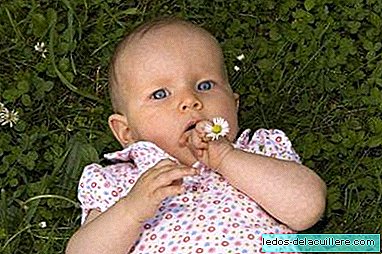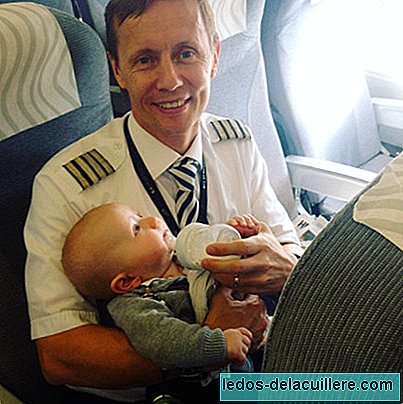
When a child or an adult has nasal congestion problems, there is no difficulty in breathing through the mouth. But the same does not happen in the little ones, because babies just breathe through their nose under normal conditions.
Breathing through the nose is more comfortable and simple, because the nose can regulate the humidity and the temperature of the inspired air and serves as a filter for harmful agents. So we don't have to worry about the fact that the baby breathes that way.
The concern comes if the baby is congested, then he has difficulties to oxygenate himself and everything possible must be done to clean his nose. But, Why do they have trouble breathing through their mouths?
The upper airways of babies (nostrils, sinuses and mouth) have an immature structure, which will transform and reach maturity between 13 and 16 years. Meanwhile, this immaturity is what makes a baby's respiratory system different.
However, when it comes to breathing through the mouth, it will be at six months when your respiratory system has acquired sufficient maturity. At that age the muscles of the tongue, face and palate develop, the epiglottis moves down to separate from the soft palate and leave more space, and can begin to breathe through the mouth. But when they are smaller, their characteristics are as specified below.

Characteristic of the baby's respiratory system
It is often said that babies have good lungs when they use them "at full capacity" when crying. But they are small lungs, but it is the rest of the respiratory system that has characteristics that will make them hard to breathe through the mouth.
Its soft palate (which ends in the "bell") is very close to the epiglottis (the cartilage that closes the communication between the pharynx and the larynx and prevents food from passing to the respiratory system). This means that there is an almost complete sealing of the air viaducts inside the mouth. As we have said, until about six months of age babies are not able to breathe in this way.
Compared to children and adults, newborns have a mouth so small that the tongue fills it almost entirely, making it difficult to pass the air.
The vocal cords of the newborn are in a higher position than those of older children, which allows them to breathe even when they are eating and prevent fluids from accidentally reaching the trachea.
He small diameter of the baby's nostrils makes any obstruction make breathing, feeding or sleep difficult ...
There is another characteristic of the respiratory system of babies that, although they have less to do with the fact that they do not breathe through the mouth, we are also interested. Babies have the eustachian tube (a small duct that connects the middle ear with the back of the throat behind the nose) in a more horizontal position and is shorter. The eustachian tube is responsible for draining the mucus, and these characteristics make your task more difficult. They also allow viruses and bacteria to more easily access the middle ear. Their tubes are also narrower and softer, which favors their obstruction. That is why babies suffer from otitis more often than older ones.
If the nose is blocked by the baby, he will make the "effort" to breathe through the mouth, but naturally it will only be possible when he cries, by generating enough force to allow the air to enter the enlarged airways (in fact, when they can't breathe through the mucus, crying is usually a route of oxygenation, although you have to try to eliminate congestion as soon as possible).
Remember that nasal washes and vacuum cleaners, humidifiers ... are our allies when the baby is congested and have trouble breathing through the mouth. This is because their organs are not ready yet and it is easier for them to breathe through the nose. Especially before eating, it is advisable to release the nostrils because they will be very uncomfortable and have difficulty breathing.












